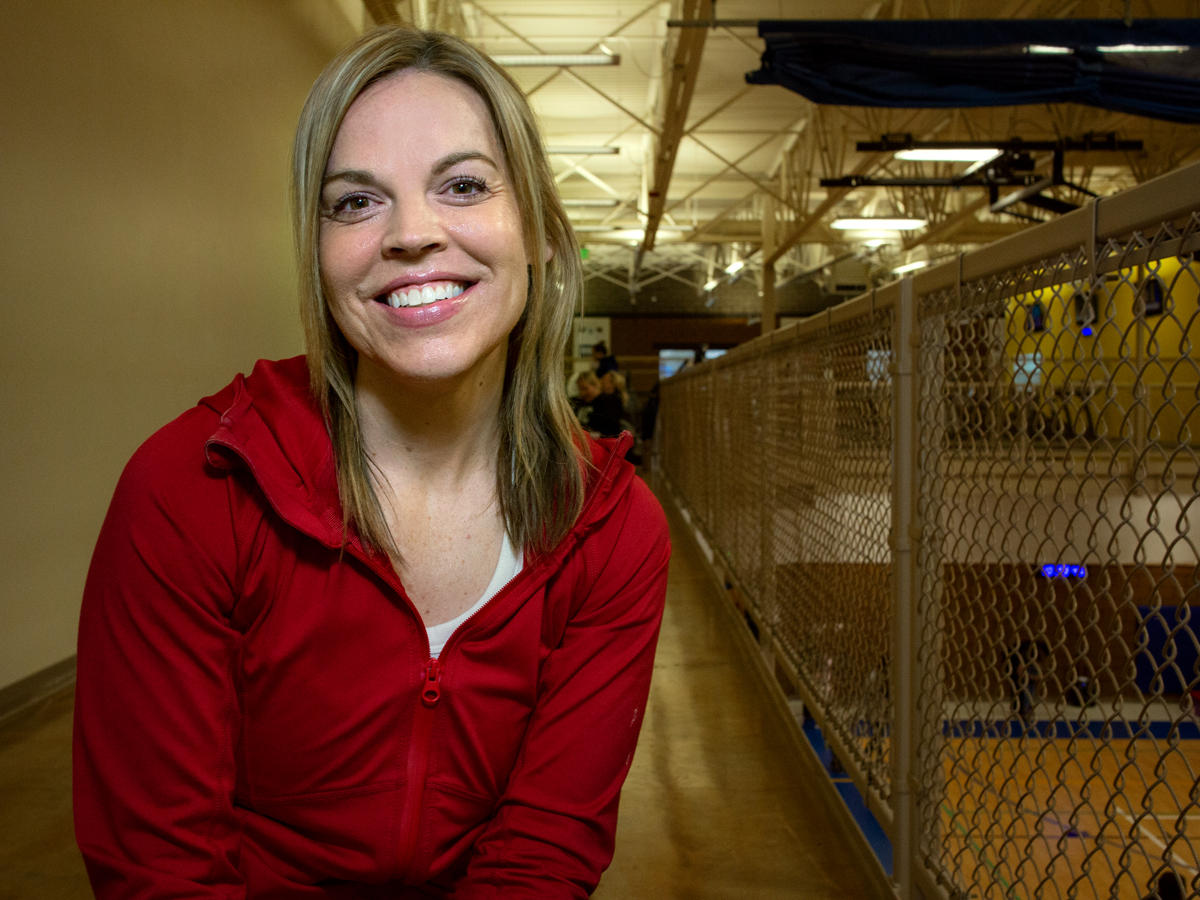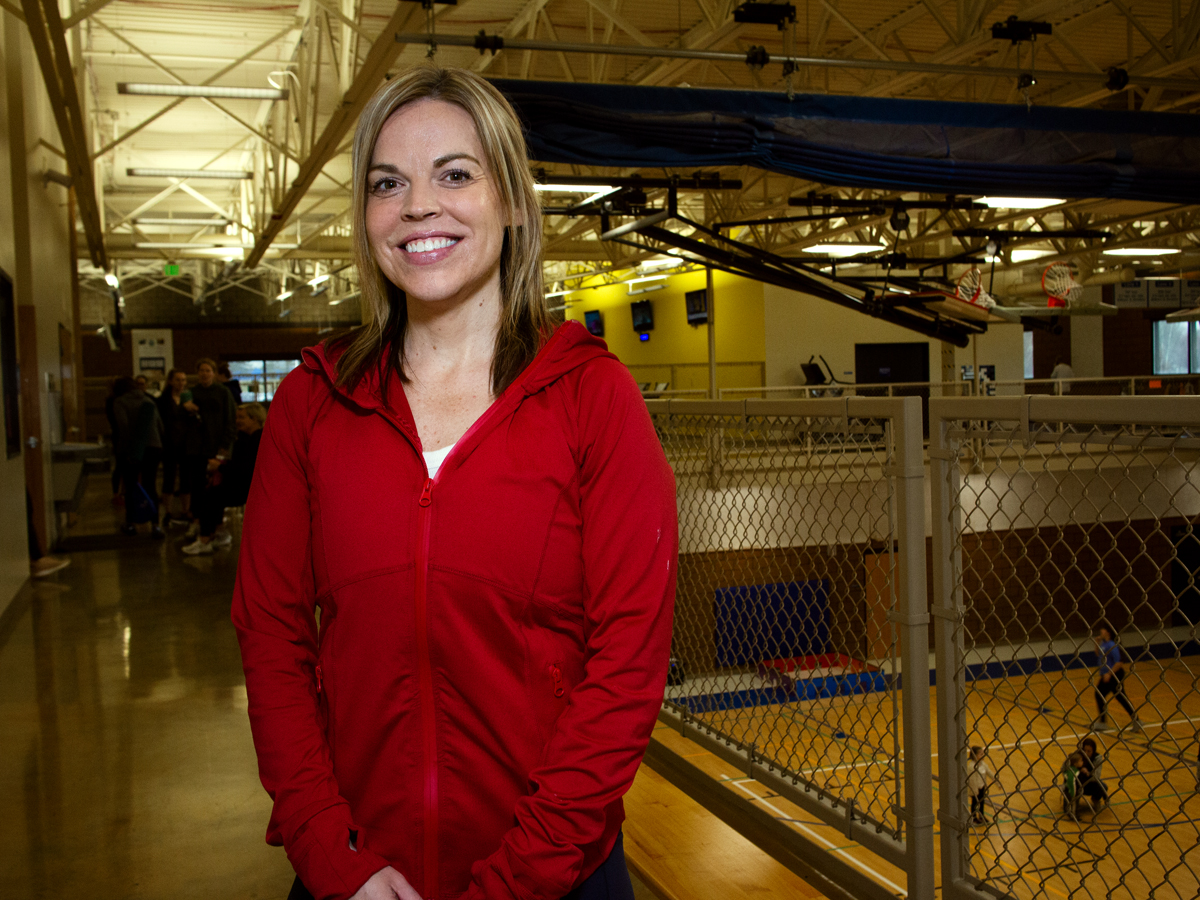“I didn’t feel that way for a long time. I struggled with depression. I struggled with an eating disorder for 20 years. And I felt like I didn’t matter! It didn’t matter!
I felt like I had to do something big and grand to matter. And as I did my own healing, I came back to myself and asked, do I like myself? Do I love myself? Am I happy with what I’m doing?
I found the answer that we each are special unique individuals, and we all have a purpose. And coming back to who you are, and what’s right for you, does impact others in the way it’s supposed to. And as soon as you get out of you’re trying to please everybody, or doing what so-and-so says, or mimicking so-and-so, you lose your impact, or you’re limiting someone else’s impact.
Every person has a unique special gift or talent. And coming back to that thought, and using it, just made me happy. It made me realize that I do have a purpose. And whether it’s with my family or strangers, I feel like I’m in contact with who I am and why I do what I do. And that’s enough to make me happy.”
I upscale the question as, looking at the fitness community that surrounded us, a premise enters my mind:
When I think about external beauty and body perfection, I question if beauty and attraction are external. A thought that troubles me as I reflect on what often I see on social media, take in peer pressure, navigate the gossip, deal with comparisons, and to be vulnerable, look at my hidden insecurities.
What is your take on this statement? I ask her.
“Yeah, absolutely,” her posture and spirit alive, Julie leans forward. “I’ve been there. I had a time when my focus was all esthetics and it was crushing my soul. I was nonstop thinking about my body, myself, and how other people perceive me. I was miserable. But as soon as I turned inward and started working on the inside-stuff-out, and not the outside-stuff-in, my life came together. It really works that way, and I think it helps the comparison and the competition go away.
You’re less judgmental, you’re more compassionate, you’re more patient, more understanding, and you look at others like they have their own unique gifts. That they have their own unique struggles.
We’re all in this human experience, and you don’t have to agree on everything. You don’t have to be the same for you—and you don’t have to be the same to have a connection with someone else.”
Like I said, Julie has a lot to teach us. Her outlook all so optimistic—and grounded by the depression and body shaming of her past, I feel she has the credentials to offer her opinions. Yet, I have to ask the hard question:
Julie, what do you do when you look at someone who is horribly hurting, have to deal with the pain that someone else has inflicted on you, or process events that are impossible to find a resolution for?
“Well, I definitely have those experiences and I don’t think it’s easy. And I don’t know that there’s one way to do it for me. I’ve done a lot of Buddhist philosophy, and it’s helped me kind of let go of attachment to things. It’s helped me just be, and it helped me to accept the fact that sometimes we’re not going to get the apology we want. But I’m not going to let that affect the rest of my life.
You know, I can wish that person the best, understand that they’re only capable of giving me what they have learned. And that doesn’t mean it doesn’t hurt, or it’s not hard. But it does help to let go of the hatred and release the hold that makes you want them to see what they did to you. And it gives you permission to just let them go—let them be—and to focus on the things that bring joy and happiness. To just accept that was a situation you can learn from. And that you can let it go and move on.”
I shift gears. Put the responsibility on us in making an observation. The idea that, in every interaction, we are leaving a footprint. For better or worse, our words and deeds do affect others. And heaven knows, I’ve put my foot in my mouth so very many times. So to any of you I’ve offended—please accept my apology. And per how real those interactions are, Julie shares a story.
“‘My oldest daughter has autism, and we go to church every Sunday, and it was just exhausting and awful. I go to church to feel better and connected to community and God. And I was not feeling that at all. I got to a point where I’m, like, I’m done, I’m not coming. And I was out in the hallway with her and a lady came up and said, ‘Oh, I love your daughter, would you mind if I take her on a walk while you go back to class?’ And I was just floored. I’m like, You would do that for me? ‘Oh, yes.’ And so she did that every Sunday. That was something she wanted to do to serve me. And it made all the difference in my spiritual growth and my belief in the goodness of people.
Knowing I can do this, I can raise her. I have a community. I have people who care, and who will reach out, and I don’t have to do it alone. So it’s just those simple things. Whether it’s a smile or an offering to serve someone else, you never know the impact to have. And that’s cool.'”




